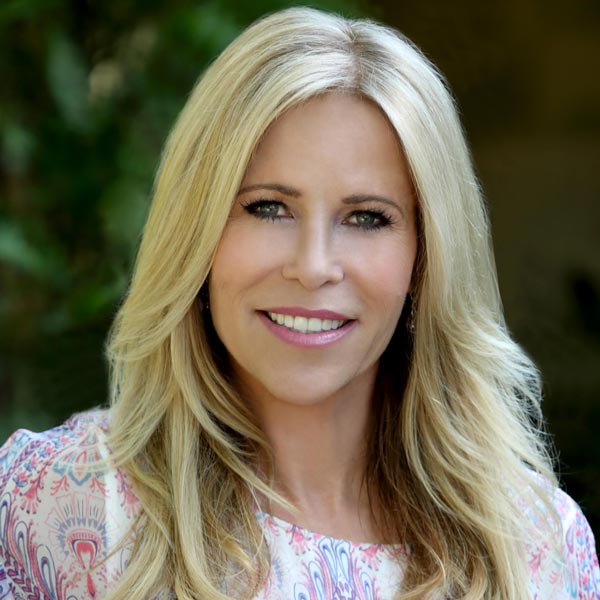A broken heart happens when the fullest possible expression of love from the heart becomes difficult. The heart has experienced something that causes it to contract and close. When functioning at its best, the heart is open, and love flows freely in and out of it. When grief enters, the heart breaks. It’s unable to properly allow the light, life, and love of God to flow unhindered.
Brokenheartedness is intense sorrow that can be caused by the loss of a dream, a close relationship, or anything that once filled the heart with a feeling of love and joy. This loss of love is always experienced when we lose a loved one or when a loved one hurts us. The greater the love and joy associated with that loss, the deeper the pain.
What happens when brokenheartedness turns to grief?
When the heart breaks, it hurts. Deep grief can cause the heart to ache and yearn to be made whole again. It can be accompanied by overwhelming sadness and emptiness that’s uncontrollable. It can feel as if the heart has shattered into smaller pieces.
Each piece, each loss, must be grieved over. It’s the accumulation of unacknowledged grief that can cause the heart to stay broken and become hardened. A hardened or cold heart can slowly weigh us down until we become unable to move with the flow of life.
When that happens, it feels like falling into an abyss of darkness, and clarity becomes hard to find. The energy of grief is heavy, slow, and cloudy. This complete lack of energy invites us into the darkness. To heal the pain, we must be willing to venture toward it.
Avoiding grief can prolong the healing process.
Avoiding grief creates a black hole in the heart, where happiness and joy will be swallowed up only to return us to a state of brokenheartedness where we’re perpetually sad, heavy, sick, and seeking to fill that hole. Life can become joyless unless we’re willing to move toward sadness, move into being vulnerable, shed some tears, and mend our heart.
The broken, hardened, cold, or grief-ridden heart longs for and demands our attention. The cold heart wants us to care so we can also care again for others and receive healing love. When we’re brokenhearted, our heart can beat harder, irregularly, and sometimes there’s an intense pressure in the chest.
It may feel like something terrible is happening. Something is; the heart and soul are reacting to feelings that don’t seem normal. The heart is hungry for the love, connection, and security that we lost. The heart is broken and needs to be put back together. That’s where grief comes in.
The healing process begins by honoring loss and grief.
Grief slows us down so that we make time to look inward, acknowledge our wounds, and learn new ways to take care of ourselves. If we don’t, we’ll be unable to find more love to flow back into and out of our hearts and make them whole again.
To get to the point where we can welcome love back into our hearts, first we need to honor the loss we’ve experienced. Grief invites us to safely explore the lost love and new ways of bringing love back, new love.
Even though, at times, it may seem abnormal to grieve, as psychotherapist, Francis Weller, explains in her book, “The Wild Edge of Sorrow: Rituals of Renewal and the Sacred Work of Grief,” “[g]rief is our common bond. Opening to sorrow connects us with everyone, everywhere.”
To live a life in which we can go from grief to glory, we must first understand how common it is to experience grief. Everyone will experience loss and grief in their lifetime. How then can we learn to get good at processing our brokenness and put the pieces of our heart back together, so that we can continually go from grief to wholeness and joy?
The answer is that grief makes us aware of what we value and love and gives us reverence for the fact that all things come and go. Nothing is permanent. Nothing is ours. Except a heart filled with great amounts of love and compassion.
Grief challenges us to use this gift of the heart and continue to enjoy the preciousness of life. Grief reminds us that we’re capable of tolerating a broken heart and having our feelings hurt. The soft tenderness of sadness allows us to reflect on the things that are most important to us.
Grief and sadness are pathways to change.
Change is constant. Loss and death are happening all the time. Things come and go, including us. Even though it’s painful, change, even the unpleasant and undesirable kind, is the pathway to growth and new life. Without change, there’s no learning, expanding, or evolving. The heart is made to open and close and to pump new life through the body. Grief and sadness cultivate in us an ability to adapt and change, move forward, and let go of the hurt and losses of the past so that we can resume the feelings of love and joy.
Grief wants us to care. It wants us to turn inward toward our pain and mend our brokenness so that we can grow more loving toward ourselves and others. When we allow ourselves to feel our grief and realize everyone has felt the same feeling, we grow in compassion and kindness to our fellow humans.
Brokenheartedness can be associated with feelings of pain, sorrow, anguish, sadness, agony, unhappiness, anger, fear, torment, distress, and desolation. If we find ourselves in any of these places of deep emotion, we must remember that emotions are portals to the soul, located in our hearts. These dark complicated emotions can either hijack us or give us an opportunity to heal past events that created similar emotions.
Deep trauma can cause us to become completely isolated or seek healing and community. At a time when self-care needs to be at its highest, these heavy feelings can deplete us of our life force and joy. They can also move us into deeper levels of intimacy and healing if we allow them.
Recurring emotions signal there’s still work to be done toward healing.
In his book, “Senses of the Soul,” Guru Meher suggests that “emotions reoccur until all previous injuries are healed and you are better equipped to handle them in the future.” He explains that when loss happens early in life or repeatedly, it may create a grief consciousness, a lasting belief that all of life is sad and lonely. Sadness and doubt can come to dominate our life. Therefore, the goal should be to allow the feelings to arise and perhaps identify if we’ve experienced a similar feeling before. In this way, we’re able to heal the past and present.
Negative thoughts can also keep a heart from healing. Blaming ourselves is common. “It is lost” becomes “I lost it” and then “I am a loser” and, finally, “Why love anything?” Each new loss can trigger old thoughts and emotions that haven’t been released or processed. If we make the choice to avoid the current pain, we can become stuck in the heaviness of past hurts and unable to heal or learn from the experience. Our thoughts and life become focused only on the memories of the past or our fears of the future
When we decide to accept and embrace the moments of brokenheartedness, we give ourselves the ability to heal past wounds stored in our hearts and soul and begin to live fully awake in the present. The goal is to abide by or be present with what’s currently happening.
When we turn toward our pain and have compassion, our hearts grow and expand. We’re being mindful and learning a heartfulness practice that we can use over and over again. And that practice is knowing loss, hurt, and a broken heart will occur again. By staying present, we learn to keep the doorway of our heart open and flowing, which in turn helps us to stop regretting the past or fearing the future.
When grieving over a new loss, we should ask ourselves if we’ve experienced a previous similar feeling. If we’re overly sad about losing our marriage, for example, but the grief caused by the divorce of our parents is still alive, we can remain stuck on both issues. It’s important to differentiate current grief from old grief so that we can address and heal both.
God can help to heal a broken heart.
During these times when we’re at our wits’ end, confused, and completely without direction, God shows up for us. However, first, we must do our part to meet Him. The tenderness and love of God begin to shower us from within and give us the strength we need to begin to live and love again.
Our heart is the center of our relationship with God. When we turn toward God’s Spirit, which dwells in our hearts, we can receive a big dose of unconditional love. We also can learn new ways for self-care as we listen to His still small voice leading us in the truth of how to move forward. God works through our conscience.
Each time a human has a broken heart, God grieves, too. He desires for us to come near Him to receive His comfort and unconditional love. Especially when we turn away from His love and seek to numb our pain with substances or distractions, He grieves even more from the loss of connection.
The good news is though we may feel defeated and without hope, God is closer than we realize. His love is poured out in our hearts and perfected every time we turn toward Him for His help during our weakness. Hope will be restored as we turn to God and trust in Him to guide us into restoration.
God can heal our hearts. God is love, and love is the energy of healing. Grief can help us to heal our hearts and return us to love.
“The Lord is close to the brokenhearted and saves those who are crushed in spirit” (Psalms 34:18)
“He heals the brokenhearted and binds up their wounds.” (Psalm 147:3)
Even if we’ve been broken, shattered, and completely without hope, God will help put us back together. How long that will take is different for everyone. We should all take as long as we need. This is our life and our journey. The truth is the Hands of God desire to put us back together, hold our hearts, marinate our hope in Him, and heal our wounds. Through the love of the Holy Spirit, the washing of the Scriptures, breathwork, meditation, prayer, movement of our body, and the releasing of tears, we’ll heal.
After the tears come healing and acceptance. Learning to let go of the past is a requirement to be healed and receive joy once again for the future “He will wipe every tear from their eyes. There will be no more death or mourning or crying or pain, for the old order of things has passed away.” (Rev. 21:4)
We all have an open invitation to lean into grief and rediscover the feelings we thought we lost.
I invite you to lean into your grief and discover the feelings you thought were lost are still there. Even though you may have lost a person, the feelings associated with having that person in your life are still very alive in you. So, create room for those happy and joyful feelings by being willing to stay present with the grief while encountering the living God in your pain and be set free. You’ll return to a healed and happy heart flowing with love once you do.
With your participation, God will help mend your broken heart and fill it back up with joy. If you have the perspective that grief is here to help you heal, then it becomes yet another way God can bring you from grief to glory. And instead of breaking you, your broken heart will be what puts you back together.
If you would like to learn more about how to improve your life through an approach of feeding the whole person, body, soul, and spirit, follow me on my blog, Facebook, Instagram, YouTube, and LinkedIn, and Medium. If you would like to work with me, schedule a session today.

Tonyah Dee has studied the Bible and wisdom traditions of the world for the last 30 years and teaches about finding ways to increase inner strength, stability, and confidence through practicing spiritual disciplines and healthy habits daily. Tonyah is a nutritionist, registered dietitian (R.D.), and earned her B.S. from Loma Linda University. She also holds certifications in Christ-centered life coaching, and meditation. Tonyah has been published in Scary Mommy, MSN, The Mighty, Mantra Wellness, CoveyClub, Thrive Global. Follow Tonyah on her blog, Facebook, Instagram, YouTube, LinkedIn, and Medium.

